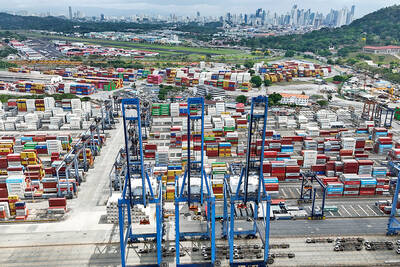Venezuela will pull the plug on 29 more radio stations, a top official in Venezuelan President Hugo Chavez’s government said on Saturday, just weeks after dozens of other outlets were closed in a media clampdown.
Infrastructure Minister Diosdado Cabello closed 34 radio stations in July, saying the government was “democratizing” media ownership. Critics say the move limits freedom of expression and has taken critical voices off the airwaves.
The powerful Chavez ally has threatened to close more than 100 stations in total, part of a long-term campaign against private media that the government says are biased against Chavez’s government.
“Another 29 will be gone before long,” he told thousands of Chavez supporters at a political rally, without giving details which stations would be closed or when.
Cabello also said he was launching a new legal case against Globovision, the country’s most prominent anti-government television network, accusing it of inciting a coup against Chavez.
Text messages circulated last week in Venezuela saying a coup against Chavez was imminent. Other messages circulated among Chavez supporters calling for them to be on the alert.
“They [Globovision] aired a tape supposedly with telephone messages calling for a coup d’etat,” said Cabello, a member of Chavez’s inner circle who took part in the president’s first bid for office — a violent and abortive coup in 1992.
Meanwhile, in a sign of rising internal tensions, government and opposition supporters have taken to the streets of Caracas following worldwide protests against Chavez.
Leaders of the “Democratic Alternative,” a coalition of opposition groups, headed a large demonstration on Saturday against a new education law.
Opponents say the law contains provisions intended to indoctrinate students and convert them into supporters of Chavez’s policies.
In recent weeks police have arrested at least 11 people demonstrating against the measure at various protests, further angering Chavez opponents.
“If you want peace, open the paths to dialogue,” Caracas Mayor Antonio Ledezma urged Chavez at the rally.
Ledezma, a leading opposition figure, appealed to the president “to end the persecution of mayors and governors” that oppose the government.
Chavez supporters, led by several Cabinet ministers, took to the streets in a different part of the Venezuelan capital to support the president’s policies and denounce “imperialism.”
They also rallied against a deal allowing US forces to operate anti-drug operations from military bases in neighboring Colombia.
Socialist Party leader Robert Serra said the demonstrators were also marching in defense of Chavez’s opponents.
“If the US intends to invade Venezuela they will not ask who is a Chavista and who isn’t,” Serra said.

THE TRAGEDY OF PUNCH: Footage of the seven-month-old Japanese macaque has gone viral online after he was rejected by his mother and formed a bond with a soft toy A baby monkey in Japan has captured hearts around the world after videos of him being bullied by other monkeys and rejected by his mother went viral last week. Punch, a Japanese macaque, was born in July last year at Ichikawa City Zoo. He has drawn international attention after zookeepers gave him a stuffed orangutan toy after he was abandoned by his mother. Without maternal guidance to help him integrate, Punch has turned to the toy for comfort. He has been filmed multiple times being dragged and chased by older Japanese macaques inside the enclosure. Early clips showed him wandering alone with

Australian Prime Minister Anthony Albanese yesterday said he did not take his security for granted, after he was evacuated from his residence for several hours following a bomb threat sent to a Chinese dance group. Albanese was evacuated from his Canberra residence late on Tuesday following the threat, and returned a few hours later after nothing suspicious was found. The bomb scare was among several e-mails threatening Albanese sent to a representative of Shen Yun, a classical Chinese dance troupe banned in China that is due to perform in Australia this month, a spokesperson for the group said in a statement. The e-mail

‘OCCUPATION’: Hong Kong said it had lodged ‘stern protests’ with Panama’s consulate, and would ‘staunchly support’ the rights and interests of Hong Kong companies Panamanian President Jose Raul Mulino on Monday ordered the temporary occupation of two ports run by a unit of CK Hutchison Holdings Ltd following the Supreme Court’s ruling against the firm’s concession, escalating a dispute that has become a proxy battle between the US and China in Latin America. Mulino said in a speech that the administration and operation of the two ports on the strategic Panama Canal is to revert to the country’s National Maritime Authority to ensure their uninterrupted, safe and efficient operation. The occupation covers movable equipment at the ports and does not mean a definitive loss of

GAME CHANGER The Russian invasion of Ukraine has shown the utility of small drones for recon, for supporting logistics and for killing across the modern battlefield Five European nations have announced a new program to produce low-cost air defense systems and autonomous drones using Ukrainian expertise, hard-won over the past four years fighting against Russia. Friday’s initiative of the five nations — France, Poland, Germany, the UK and Italy — comes as one of many European efforts to bolster defense along their borders, like a “drone wall ” with Russia and Ukraine to better detect, track and intercept drones violating Europe’s airspace. Both Moscow and Kyiv have cutting-edge drone warfare capabilities forged in the grim laboratory of war where battlefield innovations have rewritten modern battle tactics. Poland is